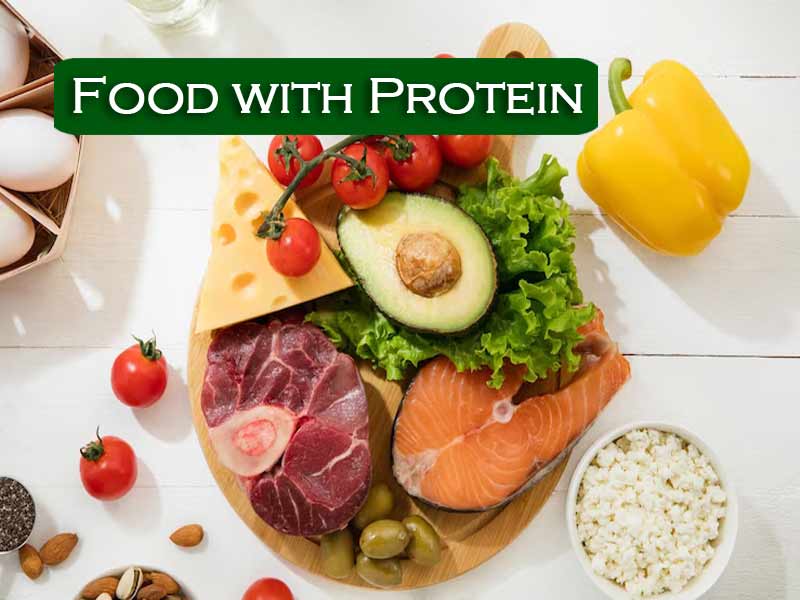In this article, we review food with protein. Protein is one of the three macronutrients that our bodies require to function optimally, the other two being carbohydrates and fats. While carbohydrates and fats provide energy, protein plays an important role in building and repairing tissues and cells in the body.
In this article, we will explore what protein is, why it is important, how much protein we need, the different types of protein, and the best food sources of protein.
What is protein?
Proteins are complex molecules made up of amino acids. There are 20 different types of amino acids, and they can be arranged in many different combinations to form different proteins. These amino acids are linked together through peptide bonds to form a long chain, which is then folded into a specific three-dimensional structure. This structure determines the protein’s function in the body.
Proteins are found throughout the body, including in muscles, bones, organs, skin, and hair.
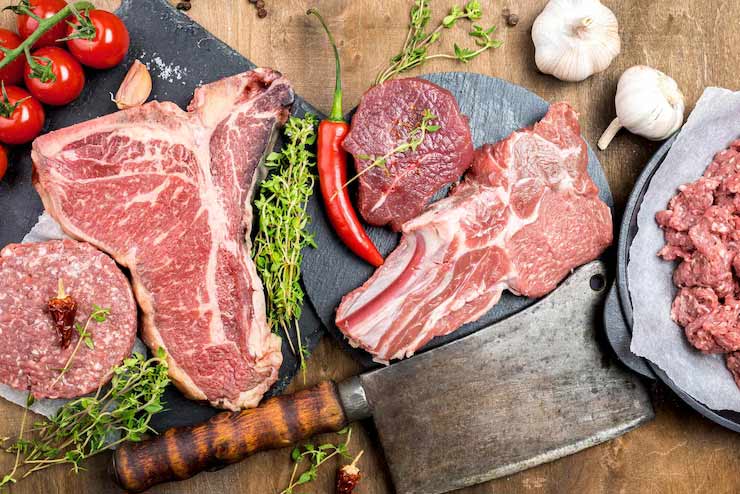
They play a critical role in many biological processes, including:
- Building and repairing tissues and cells
- Transporting molecules in and out of cells
- Regulating gene expression
- Providing immunity against diseases
- Helping enzymes and hormones function properly
Why is protein important?
Protein is essential for maintaining good health. Without sufficient protein, our bodies would not be able to repair and regenerate tissues, and we would be more susceptible to infections and illnesses. Protein also plays an important role in maintaining the structure and function of our organs, muscles, and bones.
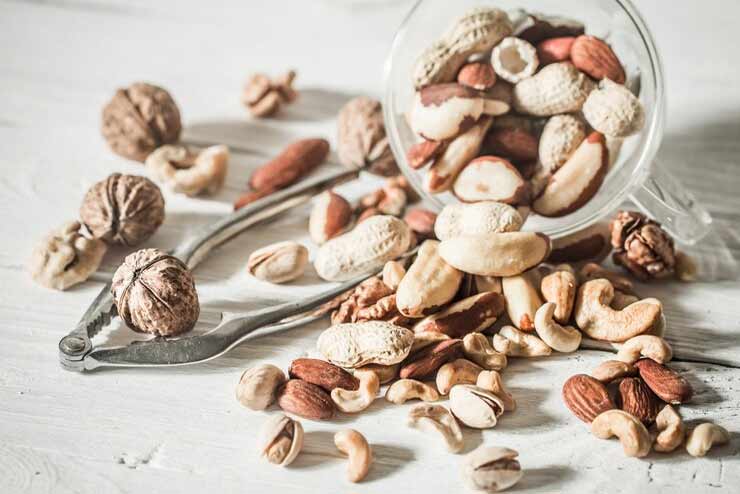
In addition to these essential functions, protein is also important for weight management. Protein has been shown to increase feelings of fullness, which can help to reduce calorie intake and aid in weight loss. In fact, some studies have suggested that diets high in protein may be more effective for weight loss than diets low in protein.
How much protein do we need?
The amount of protein that a person needs varies depending on factors such as age, sex, body weight, and activity level. The recommended dietary allowance (RDA) for protein is 0.8 grams per kilogram of body weight per day for adults. This means that an adult who weighs 68 kilograms (150 pounds) should aim to consume around 55 grams of protein per day.
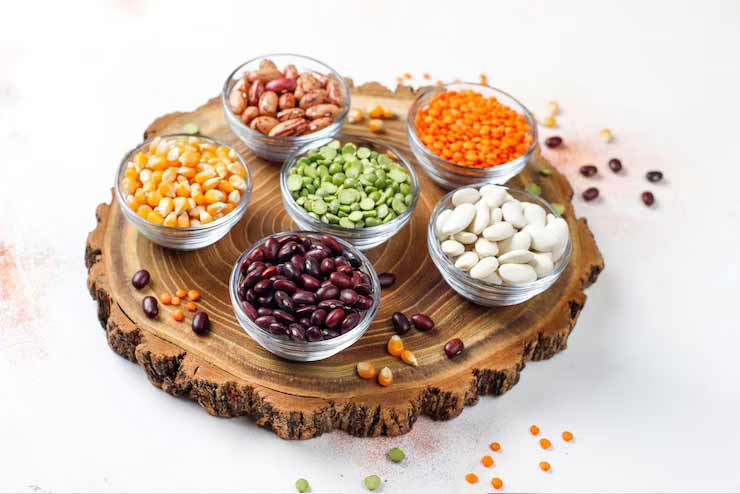
However, athletes and people who engage in regular physical activity may need more protein to support muscle growth and repair. In these cases, protein requirements can range from 1.2 to 2.0 grams per kilogram of body weight per day.
It is important to note that consuming too much protein can also have negative health consequences. Excess protein can be converted to fat and stored in the body, which can contribute to weight gain. Additionally, consuming high amounts of animal protein has been linked to an increased risk of certain health problems, such as heart disease and kidney damage.
Types of protein
Protein can come from both animal and plant sources. Animal-based proteins include meat, fish, eggs, and dairy products, while plant-based proteins include beans, legumes, nuts, and seeds.
Animal-based proteins are considered to be “complete” proteins because they contain all of the essential amino acids that our bodies cannot produce on their own. Plant-based proteins, on the other hand, are often considered to be “incomplete” proteins because they may be lacking in one or more of the essential amino acids.
However, it is possible to get all of the essential amino acids from a plant-based diet by combining different sources of plant-based protein. For example, eating beans and rice together can provide all of the essential amino acids.
Some popular types of protein supplements include whey protein, casein protein, soy protein, and pea protein. These supplements can be a convenient way to increase protein intake, especially for athletes or people who have trouble getting enough protein from their diet.
Best food with protein sources
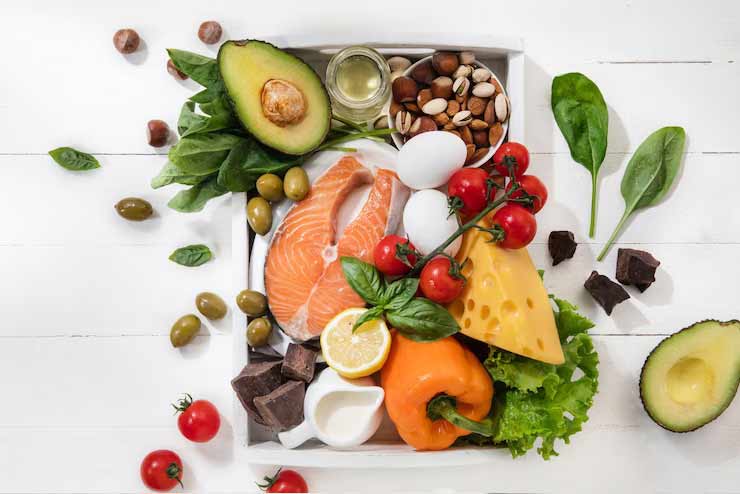
Now, let’s take a closer look at some of the best food sources of protein:
- Meat: Meat is a great source of protein, especially red meat, which is rich in iron and vitamin B12. Some examples of meat that are high in protein include beef, pork, and lamb.
- Poultry: Chicken and turkey are also good sources of protein. They are leaner than red meat and provide high-quality protein without as much saturated fat.
- Fish: Fish is an excellent source of protein, and many types of fish are also rich in omega-3 fatty acids, which are important for heart health. Examples of fish that are high in protein include salmon, tuna, and tilapia.
- Eggs: Eggs are a complete protein source and are rich in vitamins and minerals, including vitamin B12, vitamin D, and choline. They can be eaten in many different ways, such as boiled, scrambled, or poached.
- Dairy products: Dairy products like milk, cheese, and yogurt are high in protein and also provide calcium, which is important for bone health. However, it is important to choose low-fat or fat-free dairy products to limit saturated fat intake.
- Beans and legumes: Beans and legumes are a good source of plant-based protein, and they are also high in fiber, which can help to promote feelings of fullness. Examples of beans and legumes that are high in protein include lentils, chickpeas, and black beans.
- Nuts and seeds: Nuts and seeds are a great source of plant-based protein, as well as healthy fats and fiber. Some examples of nuts and seeds that are high in protein include almonds, peanuts, and chia seeds.
- Tofu and tempeh: Tofu and tempeh are plant-based protein sources that are made from soybeans. They are also rich in vitamins and minerals and can be used in a variety of dishes, such as stir-fries and salads.
- Quinoa: Quinoa is a grain that is high in protein and also contains all of the essential amino acids. It can be used as a substitute for rice or pasta in many dishes.
- Protein bars and shakes: Protein bars and shakes can be a convenient way to increase protein intake, especially for people who are on-the-go or have trouble getting enough protein from their diet. However, it is important to choose products that are low in added sugars and other unhealthy ingredients.
Food with protein
As humans, we need to consume a variety of nutrients to maintain good health, and one of the essential macronutrients that our body requires is protein. Food with protein plays a crucial role in building and repairing tissues, as well as helping to make hormones, enzymes, and other vital chemicals in our bodies.
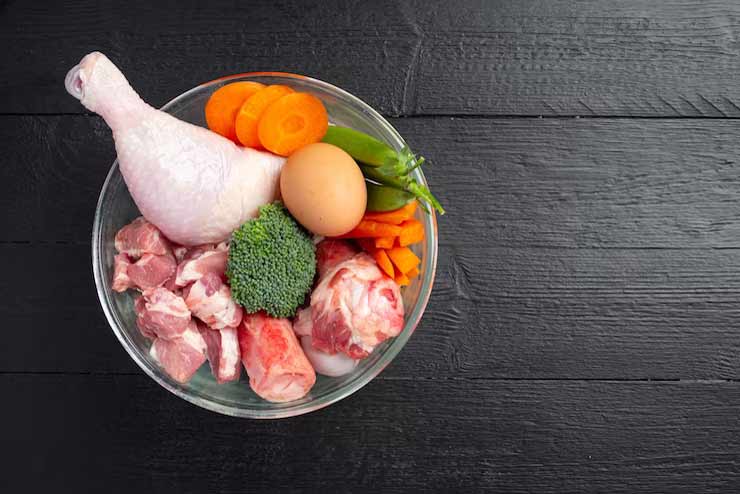
There are many types of food with protein that we can consume, including meat, fish, poultry, eggs, dairy products, nuts, and legumes. These protein-rich foods come in many forms, making it easy to incorporate them into our daily diet.
Food with protein from animal sources
Food with protein from animal sources is often referred to as complete protein because it contains all of the essential amino acids that our bodies cannot produce on their own. These amino acids are crucial for building and repairing tissues, and for maintaining healthy immune and hormone systems.
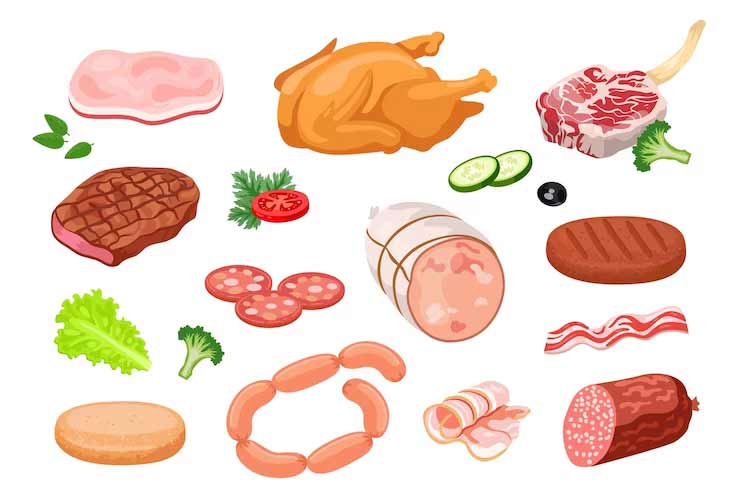
Meat, poultry, and fish are excellent sources of complete protein. Beef, pork, chicken, and fish are all high in protein, with fish being particularly beneficial due to its high levels of omega-3 fatty acids, which are essential for good brain and heart health.
Eggs and dairy products are also excellent sources of complete protein. Eggs are particularly beneficial as they are low in calories but high in protein, making them an excellent option for those looking to lose weight. Dairy products such as milk, cheese, and yogurt are not only rich in protein but also provide calcium, which is essential for strong bones and teeth.
Food with protein from vegetarian or vegan diet
For those who follow a vegetarian or vegan diet, food with protein from plant-based sources can also provide all of the essential amino acids needed for good health. Legumes such as lentils, beans, and chickpeas are particularly high in protein and are also an excellent source of fiber, which can help to keep our digestive system healthy.

Nuts and seeds are also an excellent source of protein, with almonds, peanuts, and sunflower seeds being particularly high in protein. These can be eaten on their own as a snack or added to meals such as salads or stir-fries for an extra protein boost.
When it comes to food with protein, it’s important to remember that quality is just as important as quantity. Eating a diet high in processed meats such as sausages, bacon, and hot dogs can increase the risk of heart disease and certain types of cancer. Instead, opt for lean meats such as chicken or turkey breast, fish, and plant-based sources of protein such as nuts, seeds, and legumes.
Additionally, it’s essential to consume enough protein each day to meet our body’s needs. The recommended daily intake of protein varies depending on factors such as age, sex, and activity level, but the average adult needs around 0.8 grams of protein per kilogram of body weight per day. This means that a person who weighs 68 kilograms (150 pounds) needs around 55 grams of protein per day.
In conclusion, food with protein is an essential part of a healthy diet. Consuming a variety of protein-rich foods, including meat, fish, poultry, eggs, dairy products, nuts, and legumes, can provide our bodies with all of the essential amino acids needed for good health. However, it’s important to choose quality protein sources and to consume enough protein each day to meet our body’s needs. So, make sure to include food with protein in your daily diet to maintain good health and well-being.
Food with protein not only provides us with essential amino acids, but it can also help us to feel fuller for longer, which can aid in weight loss and weight management. Protein takes longer to digest than carbohydrates and fats, so including a source of protein with each meal or snack can help to reduce hunger and prevent overeating.
Furthermore, consuming food with protein can also help to preserve muscle mass, especially as we age. Our muscle mass naturally declines as we get older, which can lead to a decrease in strength and mobility. Consuming enough protein, along with regular exercise, can help to maintain muscle mass and prevent age-related muscle loss.
There are many ways to incorporate food with protein into our daily diet. For example, we can start the day with a protein-rich breakfast such as eggs, Greek yogurt, or a protein smoothie. For lunch, we can include a source of protein such as chicken or tofu in a salad or sandwich. And for dinner, we can enjoy a grilled salmon fillet or a bean-based vegetarian chili.
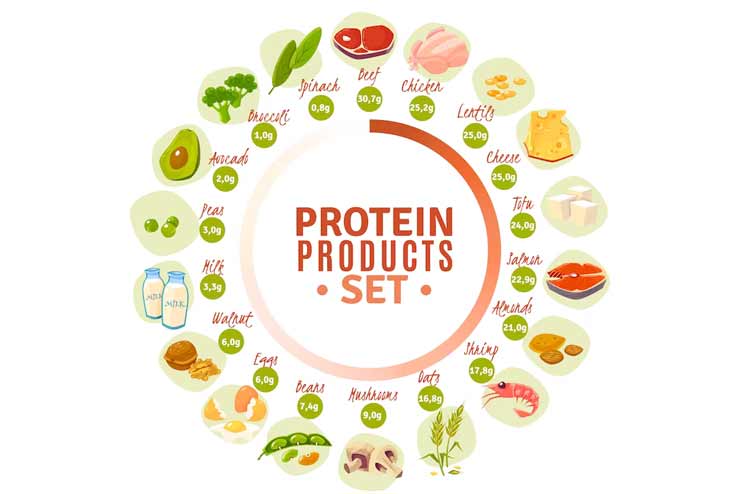
Food with protein can also be a great option for snacks. A handful of nuts or seeds, a hard-boiled egg, or a slice of cheese with whole-grain crackers can provide a quick and easy protein boost between meals.
It’s also important to note that consuming protein after exercise can help to promote muscle recovery and growth. Aim to consume a source of protein within 30 minutes to an hour after exercise, such as a protein shake, Greek yogurt, or a protein bar.
In summary, food with protein plays a crucial role in maintaining good health and well-being. It provides us with essential amino acids, helps us feel fuller for longer, preserves muscle mass, and can aid in weight management. There are many options for incorporating protein-rich foods into our daily diet, from meat and fish to nuts and legumes. So, make sure to prioritize food with protein in your diet to support your overall health and fitness goals.
The last word is with you, the audience
Be sure to read other educational articles. For scientific issues, be sure to contact a specialist doctor. These materials are only for study and non-educational purposes. Of course, expert doctors can guide you a lot.
Our cooking training center has collected unique materials for you dear ones. This content is very useful and will help you cook the best and most delicious food for yourself and your loved ones at home.
The recipe section is for introducing the best dishes of the nations. Dear ones, you can see the best dishes in this section and cook whatever you want at home. Don’t forget to read the recipe and ingredients before doing anything to determine your cooking needs.
Soon we will be with you with a more professional team with more facilities. We suggest that if you are overweight, fill out the and wait for our experts to contact you and send you the right meal plan.
The slogan we put on our site is to fight obesity. In this regard, we will provide you with many suitable recipes. Be sure to follow our site to learn about many healthy foods. Do not forget that a healthy life requires extensive changes. One of these changes is changing food. So eat healthy
Please follow us on linkedin. You can learn all best french food recipe and best Italian food recipe and best arabic food recipes and best Iranian food recipes you can check our Reddit page.
